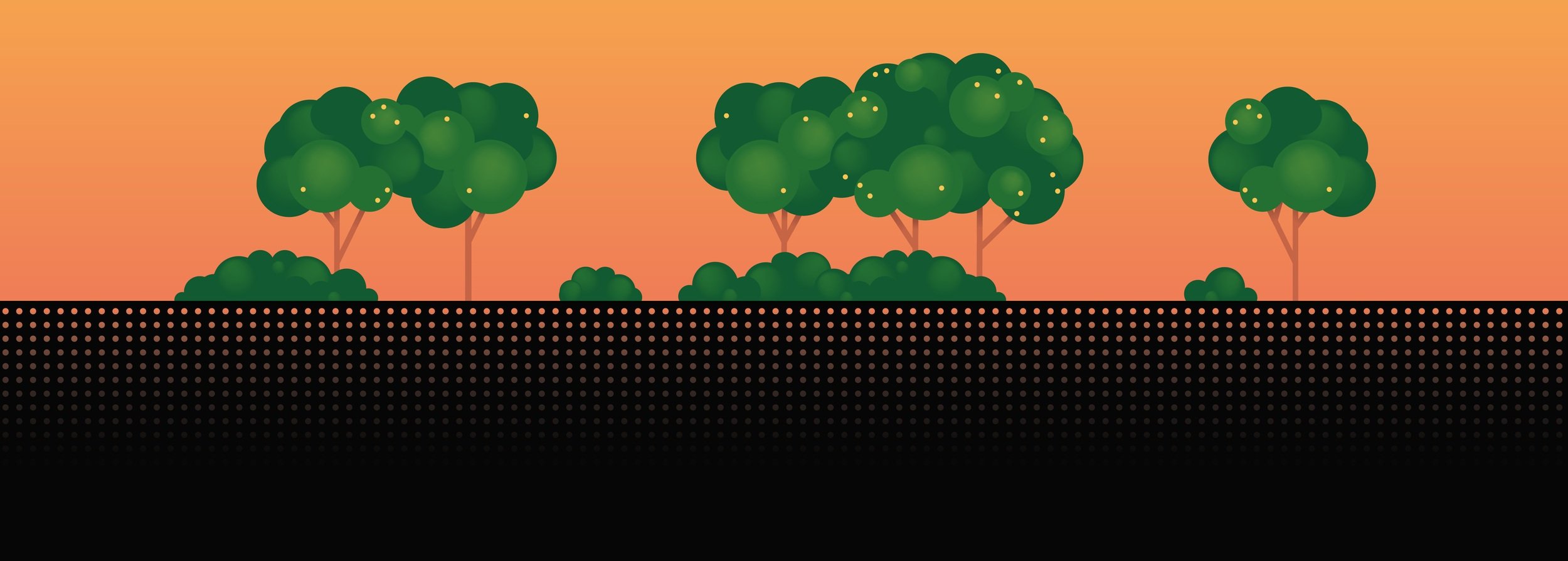
Biochar Production and its Carbon Sequestration Benefit is a Promising Way to Help Mitigate Climate Change
Explore our Biochar Field Guide and the advantages for Urban Environments.
Biochar is toasted organic matter made from organic waste products – like tree branches, peanut shells or corn cobs – that is used as a soil additive. It holds nutrients and water in the soil, stabilizing them and making them more available to plants and the microbial communities that support plants. It is a sort of nutrient bank, offsetting the need for irrigation and fertilizer, but unlike fertilizer, it does not need to be renewed each year and cannot contaminate soil or water by over application or spilling.
Biochar rich soils created thousands of years ago have been found in South America, Africa and Asia. It is believed that ancient civilizations discovered the pyrolysis process by burning crop byproducts and then smothering the fires with soil. We now refer to processes like this, which make products from waste, as circular economies. This ancient efficiency, discovered in an era when there were fewer resources, can help us solve the climate crisis.
Biochar increases the vigor of plants, reducing the need for plant care, fertilizer and irrigation. For large properties with high maintenance demands, such as university campuses, housing estates, resorts, medical and tech campuses, incorporating biochar into soil during routine maintenance cut landscape care, recovering its cost of installation in about 10 years.
As a nutrient bank, biochar evens out planting conditions. For facilities that need to be uniform and drain quickly, such as lawns, golf greens and sports fields, biochar use is increasing rapidly. Special uses also include stormwater basins, where biochar absorbs nitrogen and phosphorous from runoff, feeding these nutrients to plants and keeping water systems free of contaminants. Several municipal street tree departments across the US are now building biochar furnaces, turning tree trimming and branches into biochar that feeds the city’s trees.
Download the Biochar Field Guide.
Our Commitment to Sustainability
MKSK is committed to designing the change our world needs, discovering new solutions and building new ways of working. Every project is an opportunity to address climate change and loss of biodiversity in the design and planning of communities, landscapes, and cities. MKSK can assist in the design and planning of carbon sequestering landscapes, to help fulfill the environmental stewardship goals of our commercial, institutional, industrial, and public clients.
Learn more about MKSK’s LAB for Climate & Biodiversity Resilience.
